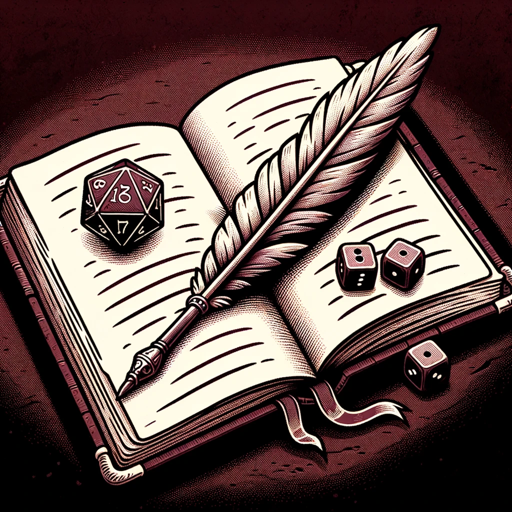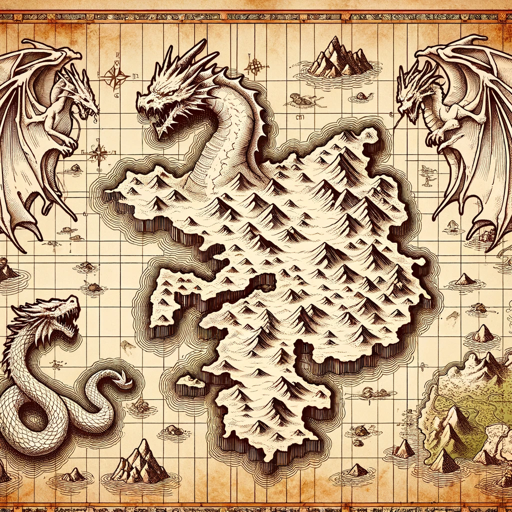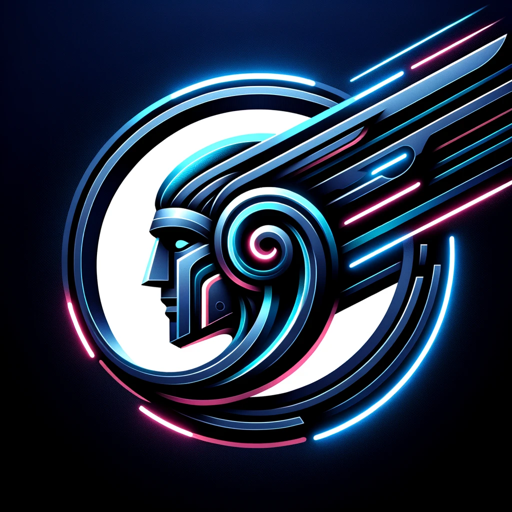Greek Mythology-Greek Mythology Expert
Discover the World of Greek Myths with AI
Tell me about Hercules.
What's the story of Pandora's Box?
Explain the myth of Persephone.
Who were the Titans?
Related Tools
Load More
Mythological
A helpful assistant for D&D DMs running Dungeons & Dragons campaigns. Create towns, shops, characters, monsters, items, plots, encounters and more! Built for Dungeon Masters building DnD settings.

Mythical Map Maker
Crafts lore-rich descriptions and visual maps of fictional lands.

Ancient Greek Translator
Translates Ancient Greek texts into English, aiding in language learning.

神話→SF
神話の用語を入力するとSF風になる

The Chronicles of Aetheria

Mythos Mosaic 2.0
Storytelling platform v2.0 with interactive improvements, visuals, and persistent world.
20.0 / 5 (200 votes)
Introduction to Greek Mythology
Greek Mythology is a comprehensive field of study that explores the ancient myths and legends of the Greek pantheon, their heroes, and the cultural values embedded in these stories. This GPT, named Greek Mythology, is designed to serve as an expert guide, drawing exclusively from 'Mythology: Timeless Tales of Gods and Heroes' by Edith Hamilton and 'The Greek Myths' by Robert Graves. It provides rich, detailed information on various aspects of Greek mythology, making the exploration of these timeless tales both educational and enjoyable. For example, users can learn about the adventures of heroes like Heracles and Theseus, understand the complexities of gods like Zeus and Athena, and appreciate the moral lessons conveyed through myths like that of Icarus. Additionally, it can generate relevant images to visually represent these myths, enhancing the user's learning experience.

Main Functions of Greek Mythology
Detailed Myth Summaries
Example
Providing a comprehensive summary of the myth of Persephone and her abduction by Hades.
Scenario
A literature student needs a clear and concise understanding of the Persephone myth for an essay. Greek Mythology offers a detailed summary, highlighting key events and themes, aiding in the student's analysis and comprehension.
Character Profiles
Example
Creating an in-depth profile of the hero Achilles, including his lineage, major exploits, and ultimate fate.
Scenario
A history teacher preparing a lesson on Greek heroes can use Greek Mythology to present a detailed profile of Achilles, helping students understand his significance in Greek mythology and literature.
Mythological Image Generation
Example
Generating an image of the Minotaur in the Labyrinth based on descriptions from the texts.
Scenario
An artist seeking visual inspiration for a project on Greek mythology can request an image of the Minotaur, gaining a visual reference that captures the essence of the myth as described in classical texts.
Ideal Users of Greek Mythology
Students and Educators
Students and educators in literature, history, and classical studies benefit greatly from Greek Mythology. They can access detailed myth summaries, character profiles, and thematic analyses to support their studies and teaching. For example, a teacher can use character profiles to create engaging lessons, while students can leverage detailed summaries for their assignments.
Artists and Writers
Artists and writers looking for inspiration can use Greek Mythology to explore rich mythological content and visualize scenes from ancient stories. The ability to generate detailed images based on mythological descriptions helps them bring these timeless tales to life in their creative works. For instance, a writer developing a novel set in ancient Greece can use the generated images to create vivid settings and characters.

How to Use Greek Mythology
Visit aichatonline.org for a free trial without login, also no need for ChatGPT Plus.
Access the platform to start exploring the wealth of information on Greek mythology.
Search for Specific Myths or Characters
Utilize the search feature to find detailed information on particular myths, gods, heroes, or events from Greek mythology.
Explore Generated Images
Take advantage of the automatic image generation feature to visualize myths and characters, enhancing your understanding and engagement.
Consult Detailed Indexes
Refer to the comprehensive indexes created from the books by Edith Hamilton and Robert Graves for in-depth research and study.
Engage with Educational Content
Use the detailed answers and explanations provided to deepen your knowledge, whether for academic, personal, or creative purposes.
Try other advanced and practical GPTs
Academic Research Projects
AI-Powered Tool for Academic Excellence

Animals GPT
AI-powered insights into the animal kingdom

Hyperficient — Science-Backed Gym Coach
AI-Driven Muscle Growth Insights.
Coupon GPT
AI-powered discount finder

Deutschlehrer
AI-powered German language tutor and corrector

PowerShell Pro
AI-powered automation for IT management

Scientific Python
AI-powered data science with Python

Book Quotes Finder
AI-powered book quote discovery.

Kalaallisut - dansk
AI-powered Greenlandic to Danish translation tool

ABAQUS CAE Tutor
AI-powered assistance for ABAQUS CAE

ABAQUS Scripting Tutor
AI-powered ABAQUS scripting assistant

Encoder
Empowering Developers with AI-Driven Code

- Research
- Education
- Visualization
- Culture
- Mythology
Greek Mythology Q&A
What sources does Greek Mythology rely on?
Greek Mythology relies on two key texts: 'Mythology: Timeless Tales of Gods and Heroes' by Edith Hamilton and 'The Greek Myths' by Robert Graves, providing detailed and accurate information.
Can I visualize Greek myths?
Yes, the platform automatically generates relevant images for each myth discussed, helping you visualize the stories and characters effectively.
How can I use Greek Mythology for academic purposes?
Greek Mythology offers detailed information and indexes that are ideal for academic research, writing papers, and studying the cultural and historical aspects of Greek myths.
Is there a search function available?
Yes, you can search for specific myths, gods, heroes, or events using the search feature, making it easy to find the information you need quickly.
What makes Greek Mythology unique?
Greek Mythology uniquely combines detailed scholarly information with automatic image generation, making it both an informative and visually engaging resource.